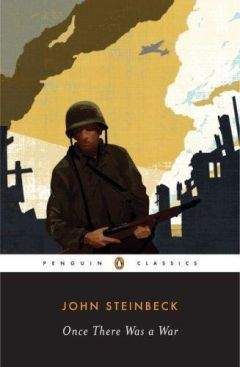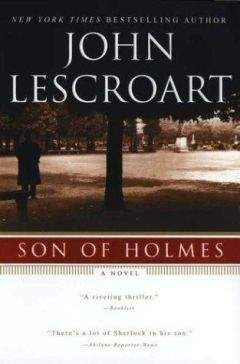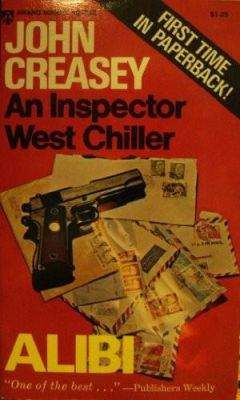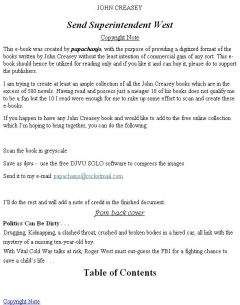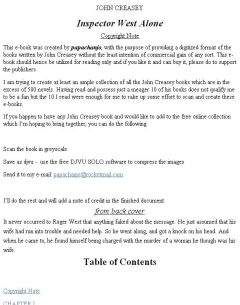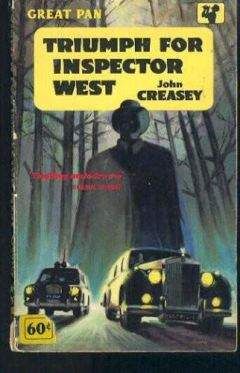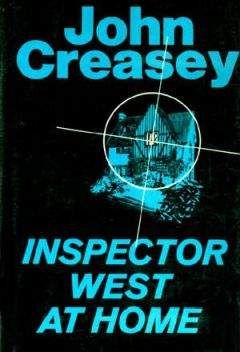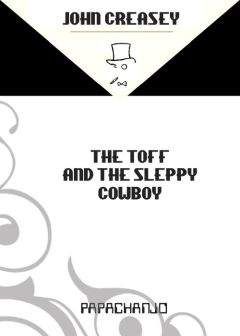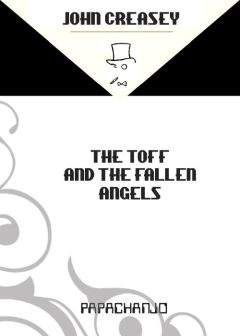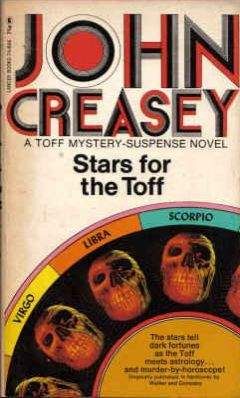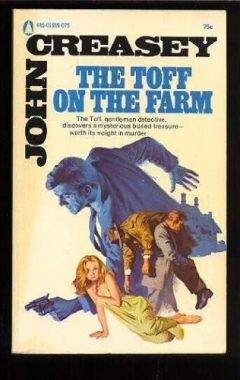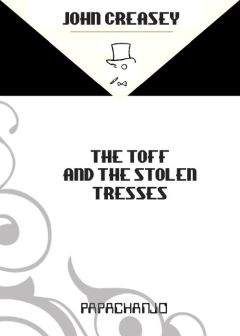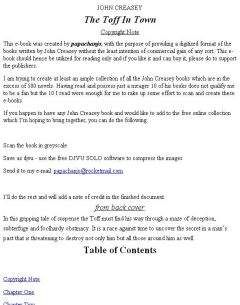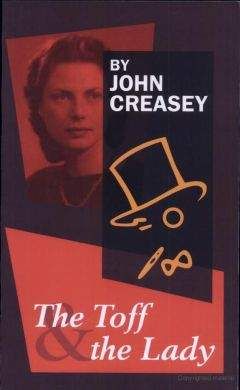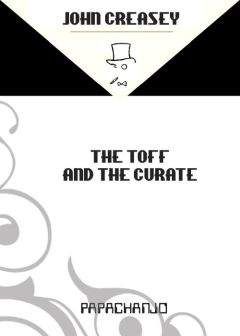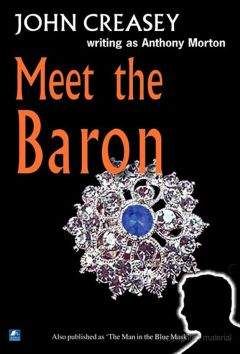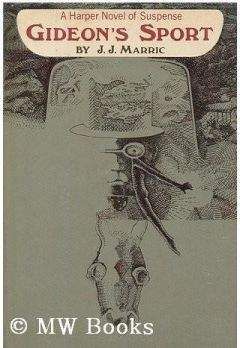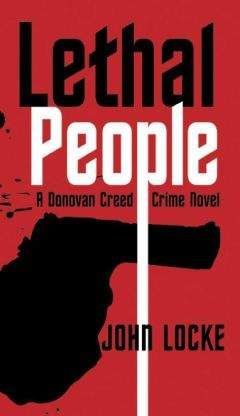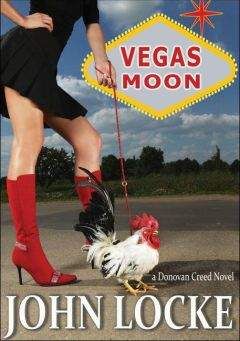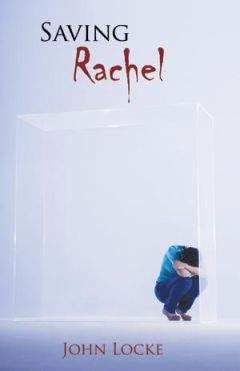John Creasey - Kill The Toff
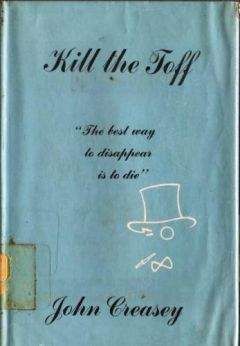
Скачивание начинается... Если скачивание не началось автоматически, пожалуйста нажмите на эту ссылку.
Жалоба
Напишите нам, и мы в срочном порядке примем меры.
Описание книги "Kill The Toff"
Описание и краткое содержание "Kill The Toff" читать бесплатно онлайн.
He found it, pressed and heard a click. The false back of the drawer sprang open.
Arden cried: “That’s it. I heard it!”
The light was poor. Rollison saw some papers and pulled them out. There were two long, legal-looking documents, tied round with red tape. That was all; there were no letters. He could hear Arden’s harsh breathing as he pulled off the tape and unfolded the documents. Both were wills. Neither contained any letters in their folds.
He drew back from beneath the desk.
Arden, standing in the doorway, croaked: “They’re gone,” and pitched forward on his face.
CHAPTER TWENTY
Challenge Accepted
“If he comes round again it will be a miracle,” the doctor said. “You should have kept him in bed at all costs.” His voice was sharp and severe.
Rollison said: it would have helped if you’d stayed.”
“I have other patients. And I could not get a nurse quickly.”
“Let’s stop arguing about it, shall we?” Rollison glanced down at the old man, whose face was blue from forehead to chin and who seemed hardly to be breathing. “Do everything you can for him. If he can be pulled round again, he may be all right—I don’t think there are any more shocks in store for him.”
The doctor said: “This is a ridiculous business. First a woman who ought to know better excites him by quarrelling, then you— oh, never mind. Did you give him the good news?”
“Yes.”
“At least he had that,” said the doctor.
He turned away and Rollison went back into the study. He looked quickly through the two wills. One, dated several years ago, left a few minor bequests, a token legacy to Clarissa and the residue of the estate to Geoffrey Arden, described as “my only son”. The other was dated eleven months ago—soon after the death of Geoffrey. Clarissa wasn’t mentioned in it; there were no minor bequests; the estate was left to James Arden Mellor in its entirety. There were instructions about the efforts to be made to trace Jim if he had not been found at the time of Arden’s death.
There was no doubt that old Arden hated Clarissa; yet he had allowed her to stay here.
Rollison went to the door and as he opened it the doctor called softly. “Oh, Rollison.”
“Yes?”
“I’m sorry I spoke like that. The collapse must have been unavoidable. There was little I could have done, had I stayed—no one could have anticipated that he would get out of bed.”
“Of course not.”
“He’ll probably want to see you if he comes round.”
“I’ll be back as soon as I can.”
“Don’t be too long, I beg you.”
The doctor went back and Rollison went quietly to the main landing and looked along the passage towards Clarissa’s room. He went along to the room and pushed open the door but no one was there. The faint smell of perfume persisted. Rollison went downstairs and the butler came hurrying forward, to inquire:
“How is he, sir?” it’s still touch and go. If Miss Clarissa returns I should like her to telephone me at once.”
“Very good, sir.”
Rollison nodded and the butler opened the door. As he did so, the rounded gleaming nose of Clarissa’s car slid into sight. She stopped, glanced at the door, looked quickly away and sat quite still.
“Never mind that message,” Rollison said. “And Miss Clarissa won’t be coming in just yet.”
He went to the car and she drew in her breath and turned to face him. The window was down. He saw every line of her face: its soft loveliness; the strain at her eyes and her lips. Her vitality was at its lowest ebb.
“Where are the letters, Clarissa?”
“Destroyed,” she answered.
“Please don’t lie.”
“That is the truth. How is he?”
“It’s touch and go.”
“And I suppose you blame me for it?” She spoke without bitterness—in a tone of resignation; but the devil of suspicion tormented him. He could not be sure of her. This might be part of the deception which she had acted from the time they had first met.
Rollison said: “Move over, will you?”
She obeyed and he got in, took the wheel and switched on the engine. He drove to Hyde Park, kept close to the near side and let the car move slowly.
“It’s no longer a question of blaming anyone. I asked you to look for papers—so if there’s need to blame, blame me. Where are the letters?”
“I destroyed them.”
“Why did you do that?”
“I thought them best destroyed. No one will know what was in them now. If my uncle hadn’t been an old fool he would have destroyed them a long time ago. They were blackmailing letters. He has been paying blackmail for several years.”
“When did you first know?”
“When I read the letters.”
“What did they say?”
“That is a family secret and I shall not tell you. If he wants to tell you, he can—but I doubt if he will. If he’d wanted to, he would have told you before.”
“If you didn’t know what was in them, why did you take them?”
“I read the first letter and then had to read the others. They were just—blackmailing letters.”
“Written on pale blue paper, like his own?” asked Rollison softly and she turned her head and looked at him sharply. “Like the note to Jim Mellor? And to Judith Lome? I didn’t tell you, did I, that your fingerprints were on those letters? I didn’t tell the police, either, because I hoped there would be an explanation. I don’t know.”
She said: “Waleski asked me for some paper. I gave him several sheets.”
“So you took your note-paper to Paris! Try another version, Clarissa.”
She looked at him angrily.
“You are a hateful creature. I’ve told you the truth. I always take paper and envelopes in my writing-case when I travel. If you don’t believe me, ask my maid.”
There’s too much hate in this business. There has been from the beginning—sheer, personal, malevolent hatred. Not crime for crime’s sake, something even more corrupt and foul. Why was your uncle blackmailed, Clarissa? What crime had he committed in his youth?”
“Crime!” She laughed. “No one is going to know what was in those letters. They’re destroyed, gone for ever, and—”
“Who wrote them?”
“I could guess.”
“Why did you write them?” Rollison asked. The car was crawling now. He pulled into the side of the road, near the trees and the damp, bright grass. A dozen people passed and looked at them curiously but Rollison did not notice them. “That’s the answer, Clarissa, isn’t it? You stole those letters and destroyed them because they were damning evidence against you. You blackmailed him, out of sheer malice: hatred. Why? What has he done to you?”
“Oh, you fool!” cried Clarissa. “You fool!”
* * *
The late evening was cool and pleasant, the fresh green of trees and grass was soothing. Rollison drove three times round the Park. Not another word had been uttered since she had cried, “You fool!” She looked straight in front of her, head held high, while he tried to sort out the confusion in his mind.
Was she still lying?
He wanted to believe her; that was why he was so determined to force her beyond endurance, to make her lose her temper and in so doing tell the truth. But after that one outburst she was composed with an unnatural calm that would not be easy to break.
If she had not written the letters, he believed he knew who had. He no longer thought that Arden might be the villain in some great conspiracy. Arden was the victim. Anxiety, fear, something near despair, had worsened his condition, had made the last years of his life an agony.
Had Clarissa been responsible?
If not, who hated him?
He said suddenly: “I expect to meet your Mellor tonight,” and watched her closely.
She turned her head sharply. “When? I don’t believe you. How do you know him? How could you arrange a meeting?”
“I don’t know him. I’ve asked him to meet me.”
“Oh,” she said, and relaxed, gave a short, mirthless laugh. “You’re so omnipotent, aren’t you? You’ve asked him to meet you and so of course he’ll come cap in hand.”
“Gun in hand, more likely. But he’ll come.”
“Why?”
“If I’ve done nothing else, I’ve switched some of the hatred towards me. It was turned on to my Mellor for a while—for far too long—but he’s free of it now. Do you see what I mean, Clarissa?”
“How much do you know?”
“Nothing. But I think I know why you destroyed those letters.”
“Another bright idea?”
“I’ve told you one guess; there’s another I’ll keep to myself. I don’t know which is right. If I meet Mellor, will you come with me?”
She said slowly: “He’ll never meet you.”
“That’s begging the question. Will you come with me?”
“Yes,” she said.
“I think we’ll go and wait at the flat,” said Rollison. “I don’t propose to let you out of my sight again.”
“I should be careful,” said Clarissa, tensely. “A villainous shrew like me might cut your throat or stick a knife in your ribs. But if you’re at your flat, the good Jolly will look after you, won’t he? I’d forgotten how much you relied on Jolly. Why don’t you take him with you to meet Mellor, instead of me?”
Rollison said: “Because he doesn’t hate Mellor.”
That pierced the brittle facade which she had built up about herself and they drove to
Gresham Terrace in silence.
* * *
Grice had telephoned three times: would Rollison please ring him immediately he returned? Rollison went to the telephone and Jolly took Clarissa’s hat and gloves, told her with his customary solemnity that she would find the mirror in the spare room best for making-up.
Grice was in his office, although it was after eight o’clock.
“Hallo, Bill,” Rollison said in a tone of near humility.
“What the devil’s got into you now?” Grice barked: he was an angry Grice. “What’s this madness about challenging Mellor to meet you?”
“I thought you wanted to find him.”
“Don’t play with words. I don’t want you to commit suicide. I warned you he was gunning for you. You’ve gone completely crazy over this affair.”
“Oh, yes. As events have proved.”
“You’re not to go to see Mellor. Understand?”
“Now, Bill, take it easy. You’ve had a man on my tail all the afternoon and I haven’t shaken him off. If you want to put another squad on, do that. You’ve got the districts hotted up to look for Mellor—have ‘em switched to me. But don’t talk drivel, old chap. If I get a chance to see Mellor, I’m going to see him. It’s the only hope I have of catching him. If you like to act the fool and follow me wherever I go, Mellor won’t play and I can’t win. If you think that will be a help, carry on.”
Grice said: “I can’t understand what’s got into you.”
“You will,” said Rollison. “Sorry I can’t stop now.”
He put the receiver down and turned to see Clarissa coming from the hall. An appetising smell came from the kitchen and Jolly flitted across the room to the small dining-alcove where the table had been laid for one and was now laid for two.
“What wine will you drink, sir?” asked Jolly.
“Any choice, Clarissa?” asked Rollison.
“I’ll leave it to you.”
“And I’ll leave it to Jolly.”
“I hope you’ve given him instructions about your funeral,” Clarissa said.
There was iced melon; a meat pate; roast chicken; trifle and Scotch woodcock; and first sherry, then champagne. The sight of the silver ice-bucket made Clarissa raise her eyebrows and she looked at Jolly as if understanding him at last. When he had gone she said: “He has a grisly sense of humour.”
“He likes serving champagne at the end of the hunt.”
“You’re sure it’s over, aren’t you?”
“Bar the last killing,” Rollison declared. They were at the savoury when the telephone bell rang and Rollison betrayed his tension when he half-rose to answer it. Jolly came swiftly from the kitchen. Clarissa watched him intently. Jolly did not hurry, coughed as he put the receiver to his ear and announced solemnly: “This is Mr Rollison’s home.” Rollison put a morsel of Scotch woodcock into his mouth. Clarissa fiddled with the long stem of the champagne glass.
Jolly said: “Very well, Mr Ebbutt, I will tell him.” He put the receiver on the desk and turned; and tension was in him as well as the others, it is Mr Ebbutt, sir. He informs me that Mellor will meet you.”
CHAPTER TWENTY-ONE
Low Dive
“Mr Ar,” said Ebbutt into the telephone, “if you take my tip, you won’t go. You just won’t go. It’s arskin’ for trouble. I wouldn’t send a rozzer there to meet Mellor. It’ll be your big mistake, Mr Ar, and the last one.”
“Where does he want me to go?” asked Rollison.
“Old Nob’s. It’s a low dive, Mr Ar—abaht the lowest in London. I wouldn’t advise a friend o’ mine to go there even if Mellor wasn’t arahnd. You know the place—cor blimey, you know it, Mr Ar, if anyone does! It’s where they ‘ad that riot coupla’ yers ago. The rozzers closed it up, remember; but it’s opened again. New owner, same low dive. Two blokes neely got rubbed aht there. The dicks keep away from it mostly—never see one nowhere arahnd: they know it’s not safe. You arsk Gricey, ‘e’ll tell yer.” Rollison chuckled.
“He’s told me. Old Nob’s just the place, Bill. When am I to go there?”
“Arter ten o’clock tonight, but—”
“Any conditions?”
“No, Mr Ar. I got the squeak from a kid. Doan know ‘ow Mellor got it to ‘im. You know wot it’s like: you never can trace back when anything comes along the vine. And becos there’s no conditions I say it’s dang’rous, Mr Ar. It’s a trap. What could Mellor wanter see yer for if it wasn’t to rub you aht?”
“No reason at all, Bill.”
“You don’t get any better as you get older,” complained Ebbutt. “Well, I s’pose I’ll ‘ave ter let yer go. But I’ll ‘ave that ‘all packed—”
“Oh, no, you won’t. Have two or three of your tougher boys there, if they volunteer to go—don’t use any pressure on them, Bill. And you can spread your men round the hall outside—not too close. There are plenty of places they can go: all the pubs, Joey’s—I needn’t tell you. I’ll call in at the Lion on my way; if the police are concentrating on the area, you can let me know there.”
“Okay,” said Ebbutt resignedly.
“You know the new owner at the place, don’t you?”
“Yes. “E don’t want no trouble, neiver.”
“Tell him to have the stage trap-door clear,” Rollison said. “That’s important, Bill. I might lose if that’s covered up.”
“I’ll see to it, Mr Ar. But I tell you—”
“I’ll come straight to you afterwards, Bill.”
“And ‘oo’s goin’ ter carry you?” muttered Ebbutt. “I wish you wouldn’t go, Mr Ar.”
“So does Jolly,” said Rollison. “I’ll be seeing you.”
He put the receiver down and heard Clarissa say: “I’ve no influence at all with him, Jolly.” She looked at Jolly. “Well? You’ve fallen for it, have you?”
Подписывайтесь на наши страницы в социальных сетях.
Будьте в курсе последних книжных новинок, комментируйте, обсуждайте. Мы ждём Вас!
Похожие книги на "Kill The Toff"
Книги похожие на "Kill The Toff" читать онлайн или скачать бесплатно полные версии.
Мы рекомендуем Вам зарегистрироваться либо войти на сайт под своим именем.
Отзывы о "John Creasey - Kill The Toff"
Отзывы читателей о книге "Kill The Toff", комментарии и мнения людей о произведении.





